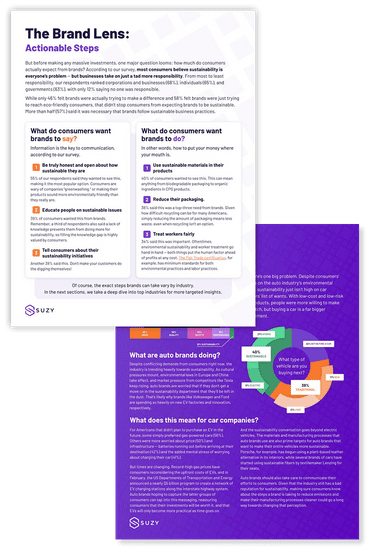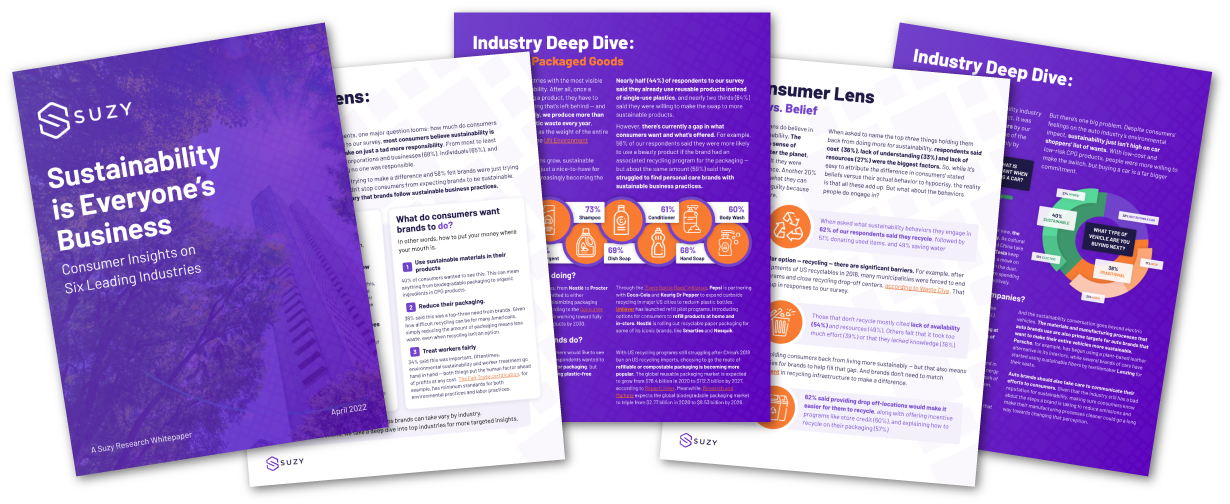Consumer Packaged Goods
As environmental concerns grow, sustainable business practices aren’t just a nice-to-have for the CPG industry -- it’s increasingly becoming the standard.
Nearly half (44%) of respondents to our survey said they already use reusable products instead of single-use plastics, and nearly two thirds (64%) said they were willing to make the swap to more sustainable products.
Automotive
The auto industry was perceived as one of the worst offenders by our respondents, with 37% saying it was one of the least sustainable industries, beat out only by airlines at 39%.
But there’s one big problem. Despite consumers’ feelings on the auto industry’s environmental impact, sustainability just isn’t high on car shoppers’ list of wants.
Consumer Electronics & Technology
Consumer electronics companies have to deal with sustainability on multiple fronts. The UN estimates that the world generates more than 50 million tons of electronic waste every year. Only 20% of that is formally recycled.
In addition to what happens to the devices themselves, there’s also the question of energy efficiency.
Food & Beverage
From limiting food waste to refilling a reusable water bottle, sustainable eating and drinking has become an ongoing part of the conversation about environmentalism. But oftentimes, eating sustainably can mean spending serious cash on organic or ethical products -- at a time when groceries are also being hit hard by inflation. Some consumers are even changing up deeply-ingrained eating habits. What does this mean for food & beverage brands?
Retail & Fast Fashion
Fast fashion has quickly become one of the biggest environmental concerns. According to the US Public Research Interest Group (PIRG), textile waste is the fastest-growing waste stream in the country, spurred on by rapidly-churning social media-influenced trend cycles and the rise of the dropshipping fulfillment model. And the production of clothing is detrimental to the environment, too.
Hemp & Cannabis
Hemp is considered one of the most sustainable crops because it needs little water, gives back to the soil, is biodegradable, and could replace many other materials, like cotton or even concrete. Though the popularity of the crop has never been fully realized due to its association with marijuana, the growing legalization movement and environmental concerns have revitalized the market for hemp -- and, of course, for cannabis itself.
In this whitepaper, you’ll learn:

-1.png?width=800&height=300&name=Suzy_Logo_Horizontal_Black%20(1)-1.png)
